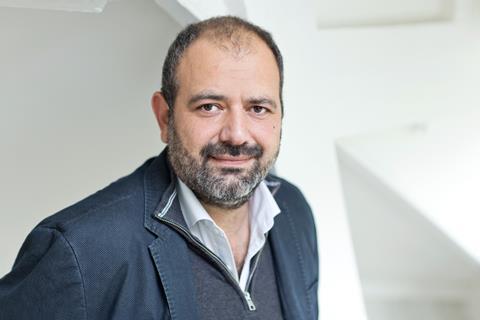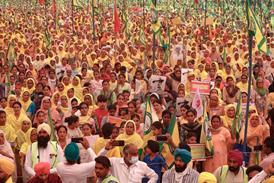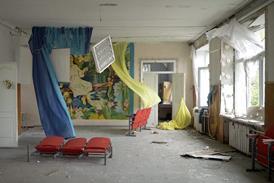
Venice Film Festival gathered a group of industry representatives in collaboration with activists’ association the International Coalition Filmmakers at Risk (ICFR) to raise awareness of the plight of filmmakers who have suffered oppression and arrests in the past year.
“The danger of forgetting these stories is very relevant,” said International Documentary Festival Amsterdam (IDFA) director Orwa Nyrabia, one of the speakers at the Filmmakers Under Attack: Taking Stock, Taking Action panel organised in collaboration with the ICFR.
The panel also drew attention to an ICFR initiative that seeks to provide information on filmmakers currently suffering persecution, urge the cinema industry to mobilise against repressive action, and discuss concrete action that may be taken by the international community.
The ICFR was launched in 2019 by IDFA, International Film Festival Rotterdam (IFFR) and the European Film Academy (EFA) to support filmmakers facing political persecution.
“We need more partners, we need more funds in order to expand these operations,” urged EFA chairman Mike Downey. “We cannot be only active, we must be proactive and in order to do this we have to set up a monitoring system.”
IFFR director Vanja Kaludjercic also called for more donations for an ICFR fund set up to help Ukrainian directors caught up in the war in Ukraine. The initiative provides grants of €500-€1,500 to help with costs such as relocation expenses and legal and administrative fees including visas.
“The war in the Ukraine has shown how fast the ICFR can raise funds from the cinema industry, and this can make a large difference,” Kaludjercic said.
Also taking part in the event were Venice artistic director Alberto Barbera, Turkish producer Nadir Öperli and director Sinem Sakaoglu, and Iranian producer Kaveh Farnam. The latter spoke about the plight of colleagues in Iran suffering from persecution, referencing the recent arrests of filmmakers Jafar Panahi, Mohammad Rasoulof and Mostafa Aleahmad.
“This type of abuse, whichever part of the world it happens in, the authorities try to silence it… Instead we need to make noise about it and talk about it, through television, and make it be known,” he said.
Festival organisers are planning to stage a flash mob on September 9 at 16:30 for the premiere of Jafar Panahi’s No Bears in collaboration with the ICFR to protest the arrest of the Iranian filmmaker and to show solidarity with other persecuted filmmakers. Panahi was sentenced to six years in prison in June after being arrested for criticising the government over the arrest of his fellow Iranian filmmakers.
Venice is also premiering four features from Iran. Vahid Jalilvand’s third feature Beyond The Wall joins Panahi in Competition, with Houman Seydei’s World War III in Horizons and Arian Vazirdaftari’s thriller Without Her in Horizons Extra.
Nyrabia also called for attention to be paid to other areas around the world where filmmakers are facing persecution for their art, including Afghanistan and Turkey.
“A year ago we were here with our Afghan colleagues talking about what we could do for them in that terrible moment in history. Today we have a lot more to talk about, but it’s essential to connect up all these experiences,” Nyrabia said. “Not enough was done, we cannot forget what happened and what is happening.”
Sakaoglu spoke of the plight of her compatriot producer Cigdem Mater, who was sentenced to 18 years in jail after she, together with some colleagues, stood accused of seeking to overthrow the Turkish government in connection with the 2013 Gezi Park anti-government protests.
Mater is well known on the festival circuit for her involvement in productions including Venice 2013 competition title Sivas.
“She is a producer and instead of being here in Venice in her community, she is in a prison in Istanbul with an 18-year sentence,” Sakaoglu said. “It’s a very important example, but it’s not the only example, and she is sharing her cell with a documentarist and there is also an editor that has also been tried. They want to silence the opposition.”
























No comments yet